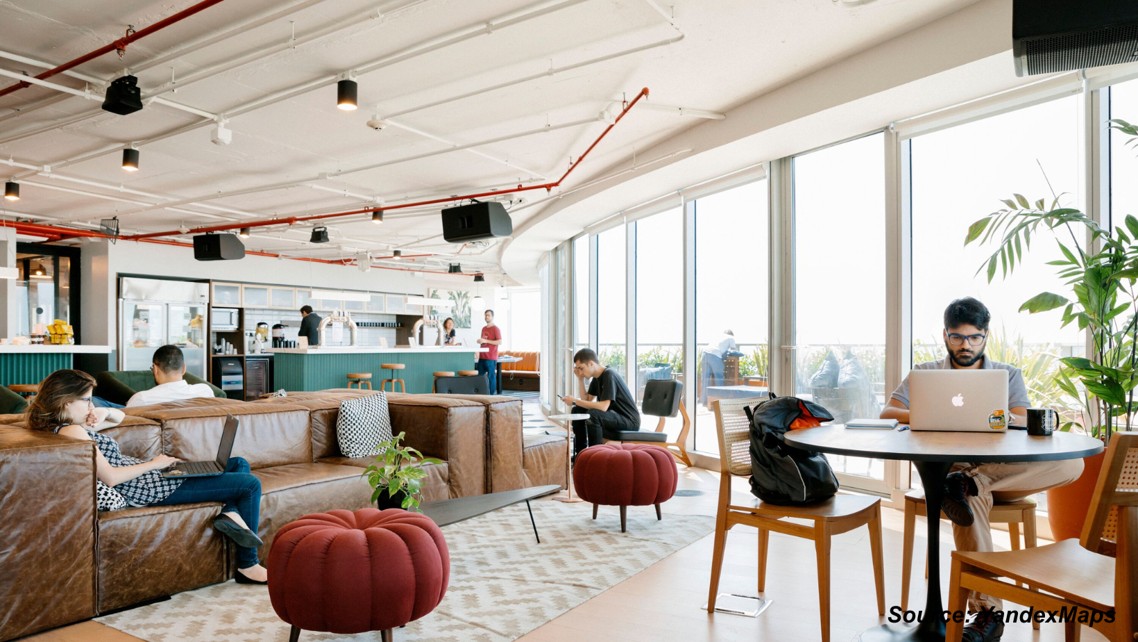
Japan Co-Working Space Market by Business Type (Conventional Co-working, Professional Co-working, and Others), by Business Model (Sub-Lease Model, Revenue Sharing Model, and Owner-Operator Model), and by End User (Independent Professionals, Startup Teams, Small and Medium Sized Enterprises, and Large scale enterprises) –Opportunity Analysis and Industry Forecast, 2024–2030
Industry: ICT & Media | Publish Date: 22-Oct-2025 | No of Pages: 136 | No. of Tables: 120 | No. of Figures: 65 | Format: PDF | Report Code : IC2036
Industry Overview
The Japan Co-Working Space Market size was valued at USD 311.2 million in 2023, and is predicted to reach USD 1034.2 million by 2030, at a CAGR of 18.6% from 2024 to 2030. Co-working space represents a dynamic and adaptable solution to the evolving needs of businesses. These shared work environments offer flexibility in lease terms and space requirements, appealing particularly to startups and small enterprises seeking to avoid the upfront costs associated with traditional offices. The communal atmosphere encourages networking and collaboration among professionals from diverse fields, fostering innovation and creativity.
Equipped with modern amenities and strategically located, co-working spaces provide cost-effective, scalable, and accessible alternatives for companies seeking a central presence without the constraints of long-term leases. The industry has experienced significant growth as businesses recognize the benefits of this model, embracing the collaborative opportunities and resource-sharing inherent in flexible workspaces.
Technological Integration Enhances Appeal And Efficiency
Co-working operators in Japan are increasingly embedding smart-office technologies, contactless access systems, and high-speed connectivity to meet the expectations of digital-first professionals. Features such as IoT-enabled lighting and climate control, AI-powered booking platforms, and integrated video-conferencing tools create a seamless user experience, reducing friction for members who need to shift between in-person and virtual collaboration. Augmented reality (AR) applications for desk reservations and virtual walkthroughs further differentiate co-working offerings, making them more attractive to tech-savvy startups and remote teams. By leveraging these innovations, operators can optimize space utilization, streamline management processes, and deliver value-added services—encouraging long-term memberships and higher occupancy rates.
Government Initiatives And Regional Revitalization Promote Expansion
Recent Japanese government policies aimed at decentralizing economic activity have incentivized companies to establish satellite offices outside major metropolitan areas. Programs under the “Regional Digital Transformation Strategy” provide subsidies and tax breaks for co-working operators who set up in regional cities, aligning with broader efforts to revitalize local economies. As municipalities partner with private providers to convert under-utilized public buildings into flexible work hubs, demand for co-working spaces outside Tokyo and Osaka is rising. These initiatives not only drive new supply but also encourage urban professionals to adopt hybrid work patterns—thereby expanding the market footprint across secondary cities and strengthening nationwide network effects.
High Real Estate Costs And Limited Space Hinder Expansion
Premium rents in central business districts and a shortage of appropriately sized properties constrain co-working operators’ ability to offer affordable options. In Tokyo and other major cities, competition for prime office locations drives up lease rates, making it difficult to maintain competitive membership pricing without compromising service quality. As a result, smaller providers struggle to secure long-term, cost-effective leases, and existing operators face pressure to pass escalating overheads onto members. This dynamic limit the market’s accessibility for budget-conscious freelancers and early-stage startups, slowing overall adoption and geographic expansion.
Ai-driven Smart Services And Personalization Fuel Market Opportunities
Co-working operators in Japan are increasingly adopting AI-powered platforms to enhance member experiences and optimize resource utilization. Intelligent booking systems, powered by machine learning, predict peak usage patterns and dynamically allocate desks, meeting rooms, and equipment. These systems can recommend optimal seating arrangements based on project needs, preferred working styles, or networking opportunities, fostering a more engaging and efficient environment.
Beyond space optimization, AI-driven community-management tools analyze member profiles, event attendance, and collaboration histories to suggest high-value connections and relevant programming. Personalized newsletters, automated alerts for skill-sharing sessions, and tailored learning resources encourage deeper engagement and strengthen member retention. By leveraging AI in this way, co-working spaces differentiate their offerings, attract tech-oriented startups and established enterprises alike, and create a scalable model for delivering bespoke services across multiple locations.
Competitive Landscape
The Japan co-working space industry comprises various companies, including WeWork Japan, Regus (IWG Group), BIZcomfort, fabbit, THE HUB (nex Inc.), Impact HUB Tokyo, BasisPoint, Servcorp, JustCo, The Executive Centre, Compass Offices, Creative Lounge MOV, The Hive, Andwork, Reqree, and others.
Japan Co-Working Space Market Key Segments
By Space Type
-
Shared Open Spaces
-
Enclosed Private Suites
-
Virtual Office Solutions
-
Event/Meeting Facilities
By Membership Type
-
Hot Desks
-
Dedicated Desks
-
Private Office Leases
-
Hybrid Flex Passes
By Business Type
-
Standard Coworking
-
Premium Managed Offices
-
Niche/Specialized Spaces
By Business Model
-
Direct Ownership/Operation
-
Franchise/Partnership
-
Real Estate Collabs
By End User
-
Freelancers/Remote Workers
-
Startups (<10 Employees)
-
SMEs (10–250 Employees)
-
Large Enterprises (>250)
By Industry Vertical
-
Technology & IT Services
-
Financial & Professional
-
Healthcare & Life Sciences
-
Manufacturing & Logistics
-
Public Sector & Education
-
Others
Key Players
-
WeWork Japan
-
Regus (IWG Group)
-
BIZcomfort
-
fabbit
-
THE HUB (nex Inc.)
-
Impact HUB Tokyo
-
BasisPoint
-
Servcorp
-
JustCo
-
The Executive Centre
-
Compass Offices
-
Creative Lounge MOV
-
The Hive
-
Andwork
-
Reqree
Report Scope and Segmentation
|
Parameters |
Details |
|
Market Size in 2023 |
USD 311.2 Million |
|
Revenue Forecast in 2030 |
USD 1034.2 Million |
|
Growth Rate |
CAGR of 18.6% from 2024 to 2030 |
|
Analysis Period |
2023–2030 |
|
Base Year Considered |
2023 |
|
Forecast Period |
2024–2030 |
|
Market Size Estimation |
Million (USD) |
|
Growth Factors |
|
|
Companies Profiled |
15 |
|
Market Share |
Available for 10 companies |
|
Customization Scope |
Free customization (equivalent to up to 80 working hours of analysts) after purchase. Addition or alteration to the country, regional, and segment scope. |
|
Pricing and Purchase Options |
Avail customized purchase options to meet your exact research needs. |

















 Speak to Our Analyst
Speak to Our Analyst

























